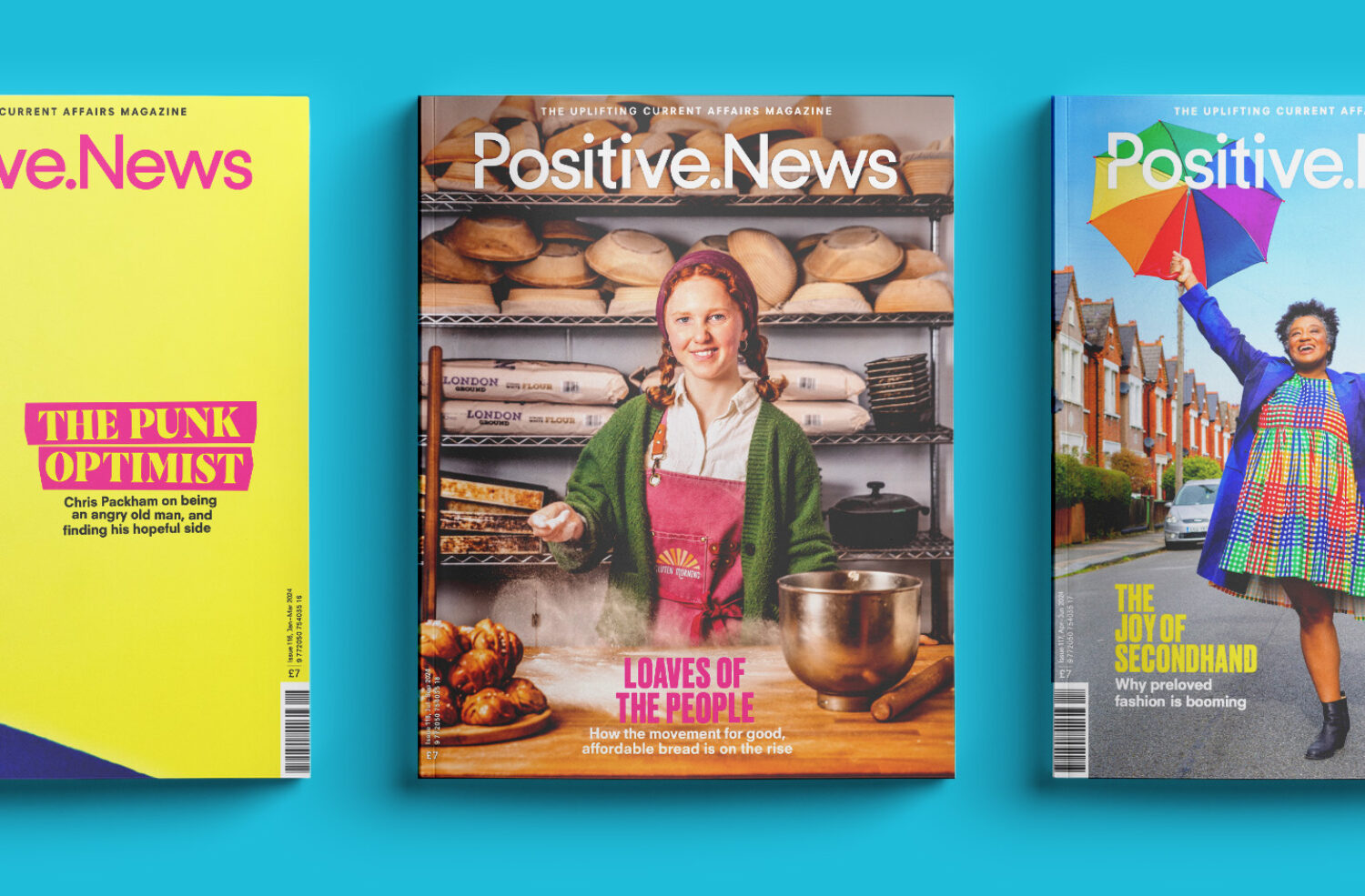The world passed a green energy ‘pivot point’, a child had her hearing restored, and a manifesto for positive change launched, plus more good news
This week’s good news roundup

The world got more than 30% of its electricity from renewables last year, a milestone that will usher in “a new era of falling power sector emissions”.
That’s according to analysis by the climate thinktank Ember. It said that while global demand for electricity rose in 2023, this was more than offset by new wind and solar installations. China, it added, led the charge, accounting for 51% of additional global solar generation and 60% of new global wind generation.
“The renewables future has arrived. Solar in particular is accelerating faster than anyone thought possible,” said Ember’s Dave Jones. “The decline of power sector emissions is now inevitable. 2023 was likely the pivot point – peak emissions in the power sector – a major turning point in the history of energy.”
However, with some countries, including the UK, falling behind in the renewables race, Jones warned against such backsliding.
“There’s an unprecedented opportunity for countries that choose to be at the forefront of the clean energy future,” he said. “Expanding clean electricity not only helps to decarbonise the power sector. It also provides the step up in supply needed to electrify the whole economy.”
Image: Ma Li/iStock
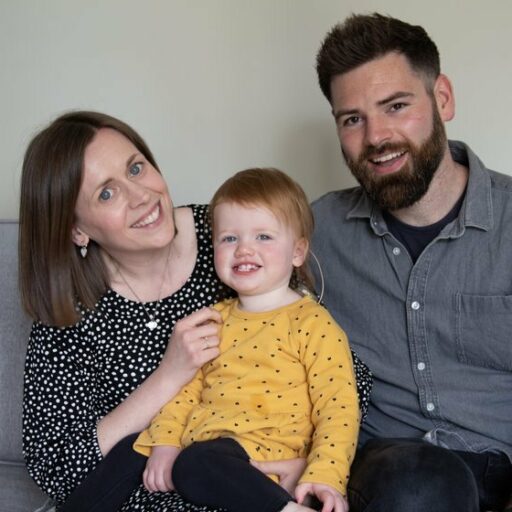
A girl who was born deaf can hear unaided after receiving groundbreaking gene therapy treatment.
Opal Sandy from Oxfordshire, England, was born with a genetic condition known as auditory neuropathy. Auditory neuropathy can be due to a variation in a single gene, known as the OTOF gene, which produces a protein called otoferlin that allows the inner hair cells in the ear to communicate with the hearing nerve. An estimated 20,000 people across the UK, Germany, France, Spain and Italy are deaf due to a mutation in the OTOF gene.
Opal is the first patient to be treated in a global gene therapy trial, which showed “mind-blowing” results.
“Gene therapy has been the future in otology and audiology for many years and I’m so excited that it is now finally here,” said trial leader Prof Manohar Bance, an ear surgeon at Cambridge University Hospitals NHS Foundation. “This is hopefully the start of a new era for gene therapies for the inner ear and many types of hearing loss.”
Jo Sandy, Opal’s mother, added: “When Opal could first hear us clapping unaided it was mind-blowing – we were so happy.”
Image: Opal with mother, Jo, and Father, James. Credit: Cambridge University Hospitals

Children with milk and peanut allergies are having their lives “transformed” by a pioneering oral immunotherapy trail, which trains their bodies to tolerate allergens.
The £2.5m UK trial uses daily doses of everyday food products – taken under strict medical supervision – to build up a resistance to allergens. Doctors say they are already seeing children on the trial consume and tolerate foods that once triggered a severe allergic reaction.
“We are very pleased with the results we are seeing so far,” said trial lead Prof Hasan Arshad of the University of Southampton, England. “At present, people with food allergies are asked to avoid the food they react to and carry adrenalin pens in case of accidental exposure. This is not a satisfactory situation, and we would like them to be able to live their lives without having to avoid the popular foods that others enjoy or being fearful of accidental food allergic reactions.”
Image: Alex Green/Pexels
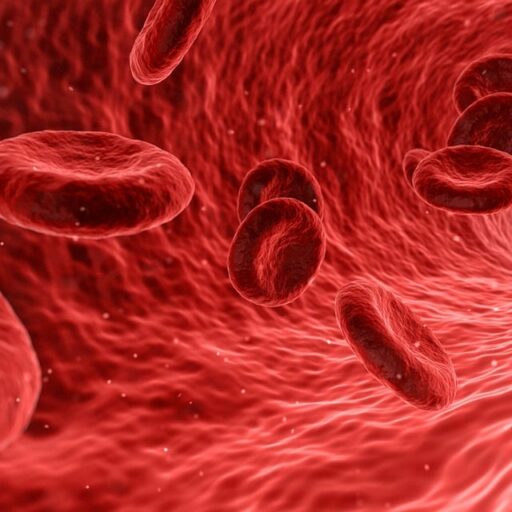
A new ‘lifechanging’ treatment for sickle cell disease has been approved by England’s health watchdog.
Voxelotor, which is administered as a daily tablet, has been shown to improve the quality of life for people with sickle cell, as it reduces their need for blood transfusions.
In England, about 17,000 people are living with the disease, which is more prevalent in people with African or Caribbean heritage.
Helen Knight, director of medicines evaluation at the National Institute for Health and Care Excellence, said: “This is great news for people with sickle cell disease, particularly given the health inequalities experienced by people with the condition.”
Image: Arek Socha/Pixabay

The UK government’s climate plan has, for the second time, been ruled inadequate by the High Court.
That might not sound like good news, but it means that the government must now come up with a more robust plan to reduce emissions. It also shows the strength of the UK’s Climate Change Act, which was introduced in 2008 to hold the government of the day to account over its climate policies.
The case against the government was brought to the High Court by Friends of the Earth, the Good Law Project and Client Earth, an environmental law charity.
“The court made it emphatically clear: the government cannot just cross its fingers and hope for high-risk technologies and uncertain policies to plug the huge gaps in its plans,” said Sam Hunter Jones, a senior lawyer for Client Earth.
“The good news is that with crisis comes opportunity. As its own expert advisors have repeatedly said, the government has a golden opportunity to reduce emissions with actions that will also create jobs, improve services and bring down household bills.”
Image: David Dibert/Unsplash
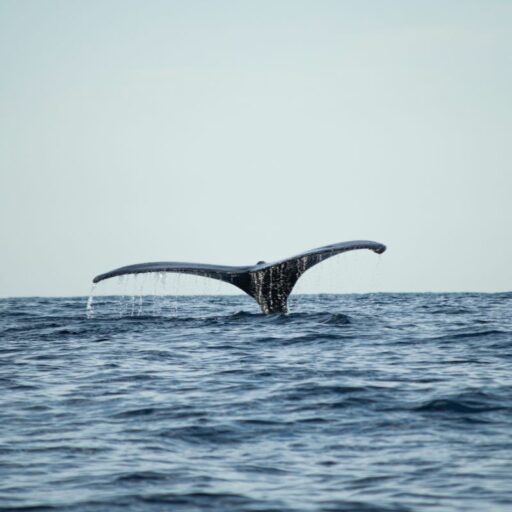
There’s cautious optimism that Antarctic blue whales are staging a comeback after commercial whaling pushed them almost to extinction.
Blue whales are the largest animals on Earth but spotting them is notoriously difficult. “Antarctic blue whales are critically endangered, and this makes them difficult to find in the vast Southern Ocean,” says marine mammal acoustician, Dr Brian Miller. “But they make very loud, low frequency calls that we can detect from hundreds of kilometres away, using acoustic technology.”
This technology enabled Dr Miller and his team at the Australian Antarctic Division to produce a comprehensive snapshot of blue whales in Antarctica.
The data shows that Antarctic blue whales are distributed all around Antarctica and through the sub-Antarctic during summer. It raises hopes that the mammals are rebounding, though further research is needed.
“This analysis represents the most contemporary circumpolar information on the distribution of these rarely sighted and elusive animals,” Dr Miller said. “Our analysis and the collated datasets will serve as a baseline and springboard for future work.”
Image: Andres Corredor/Unsplash

It was an election billed as a bellwether for British attitudes towards environmental policies, with one issue coming to dominate London’s mayoral elections last week: the city’s ultra-low emissions zone (ULEZ).
The main challenger for the top job, Susan Hall, vowed to repeal the roll out of ULEZ to outer London on “day one” if she was elected – despite it being linked with improvements in air quality. In the end, Sadiq Khan, who expanded the ULEZ last year, was re-elected with a big majority.
The ULEZ was introduced to inner London in 2015 by then-mayor Boris Johnson. It’s contentious because owners of older more polluting cars must pay £12.50 a day to drive in the zone. However, 97% of vehicles are compliant and a scrappage scheme, which pays owners of ULEZ-incompliant cars to get rid of them, is available.
Even so, ULEZ was turned into a culture war issue and became symbolic of the kind of environmental policies that some parties want to campaign against – a strategy that now, perhaps, looks like a dead end.
Image: David Hawgood/Wikimedia Commons

A splash of olive oil a day could keep dementia at bay, according to Harvard researchers.
In a study, nutritionists analysed health data for more than 92,000 people over 28. They found that those who consumed at least 7g of olive oil daily were 28% less likely to die from dementia-related ailments compared to those who ate none.
A growing body of evidence links the Mediterranean diet with better health outcomes. In their study, Harvard researchers found evidence that the heavy use of olive oil in the diet could be one of its most significant factors.
“These results suggest that olive oil intake represents a potential strategy to reduce dementia mortality risk,” the study concluded.
Here are six lifestyle choices that can slash your risk of developing dementia.
Image: RF._.studio/Pexel

Put away your lawnmowers. That’s the message UK councils are sending to homeowners this week as No Mow May returns.
Some 40 councils have agreed to let verges and parks grow wild to boost bug numbers this May – and are asking people to do the same in their gardens.
No May May was launched by the charity Plantlife in 2019. This year’s campaign follows research which showed that letting your garden grow with long grass can increase butterfly numbers by up to 93%.
“Leaving lawns to just let it be in May allows a wonderful array of wild plants to flower and flourish,” said Sarah Shuttleworth, senior ecological advisor at Plantife. “This floral diversity… provides a rich food source for a wealth of wildlife throughout the summer.”
Image: Niklas Hamann
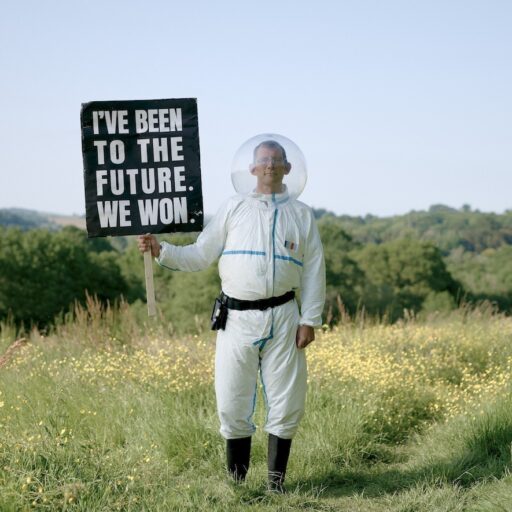
How about free public transport paid for by higher taxes on air travel? It’s one of the ideas put forward in a new manifesto from the ‘Ministry of Imagination’, a creative project to improve the world.
The manifesto was compiled by activist Rob Hopkins (pictured), who in a recent article for Positive News, made a compelling case for using the imagination as a form of activism.
Hopkins’ manifesto is based on interviews with thought leaders who appeared on his ‘From What If to What Next’ podcast, including one with Positive News’ CEO Seán Dagan Wood.
A community media fund – paid for by the government to support grassroots media – was one of Wood’s ideas that made the manifesto. Read them all here.
Image: James Bannister
Main image: Yongyuan Dai/iStock
Get your weekly fix of good news delivered to your inbox every Saturday, by signing up to the Positive News email newsletter.
Support solutions
Positive News is helping more people than ever to get a balanced and uplifting view of the world. While doom and gloom dominates other news outlets, our solutions journalism exists to support your wellbeing and empower you to make a difference towards a better future.
But our reporting has a cost and, as an independent, not-for-profit media organisation, we rely on the financial backing of our readers. If you value what we do and can afford to, please get behind our team with a regular or one-off contribution.
Give once from just £1, or join 1,400+ others who contribute an average of £3 or more per month. You’ll be directly funding the production and sharing of our stories – helping our solutions journalism to benefit many more people.
Join our community today, and together, we’ll change the news for good.





